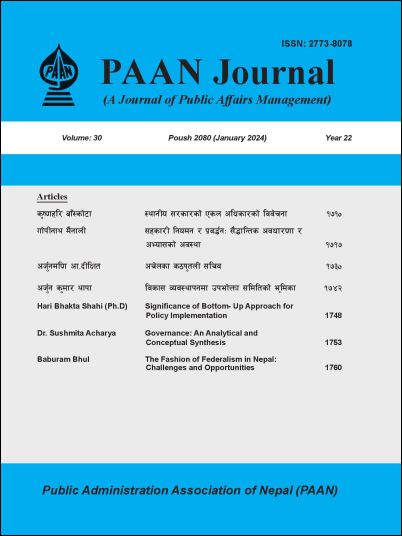Governance: An Analytical and Conceptual Synthesis
DOI:
https://doi.org/10.3126/paanj.v30i1.66102Keywords:
Governance, Government, Participation, DemocracyAbstract
The purpose of this article is to provide an analytical and conceptual synthesis on governance. Although governance is a vague term, in common parlance it resembles the action or manner of governing. Research scholars have defined ‘governance’ with the perspective of change and have given four broad meanings to governance in the literature, including a structure, a process, a mechanism and a strategy. Multinational organizations have portrayed governance as a mechanism of power exercise in the management of a country’s economic and social resources for development. However, governance is not simply about how government conducts business in its own sphere but also deals with how government interacts with civil society to encourage and facilitate people’s participation not only in the delivery of services but also in the formulation, implementation and evaluation and monitoring of government performance.
The advantage of this article is that it not only describes what governance is all about but it also accentuates ‘What governance is not?’. It has been concluded that governance has not been a unified approach to the study of politics, economics, and society as it lacks specific virtue of theory of causal relation.




